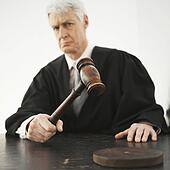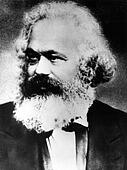By Jordan Sekulow
 Christians often struggle with Romans 13:1-5, which talks about a Christian’s duties to the state.
Christians often struggle with Romans 13:1-5, which talks about a Christian’s duties to the state.
“Everyone must submit to the governing authorities,” the passage reads, “for there is no authority except from God, and those that exist are instituted by God.” After reading that passage, some ask “why, then should we be involved in politics, support wars, or campaign for human rights?“ If we stop reading there, it is easy to conclude that not only is it unimportant but that it is actually wrong for Christians to be active in politics, whether through grassroots electoral efforts, lawsuits protecting religious freedom or questioning the government.
Eric Metaxas, author of the celebrated, comprehensive biography of Dietrich Bonhoeffer shed some light on this tension on my radio show this week.
“God forbid that the church would just hide in little religious issues and say, you know, ‘That’s not my business, I can’t get involved in politics,’ ” Metaxas said. “Not getting involved in politics is just as bad, just as heretical, as making an idol of politics.”
How do we get from Romans 13:1 to calling the church’s political silence heretical?
Bonhoeffer himself, as well as the verses that follow Romans 13:1, help us get there. Let’s begin with the Scripture:
“So then, the one who resists the authority is opposing God’s command, and those who oppose it will bring judgment on themselves. For rulers are not a terror to good conduct, but to bad. Do you want to be unafraid of the authority? Do good and you will have its approval. For government is God’s servant, an avenger that brings wrath on the one who does wrong.”
The government in Romans 13 is a godly government. This does not mean that to meet this definition a government needs to be Christian, nor should it be a theocracy. A Romans 13 government promotes justice, provides security, and protects the freedom of its people, regardless of religious belief or background. In the United States, we shape the government with our votes. Thus, it is our responsibility to do what we can to ensure that our government lives up to these basic principles.
Dietrich Bonhoeffer was a German pastor and outspoken opponent of the Third Reich. When the Nazis found out that he was assisting Jews, he was thrown in jail and later transferred to and executed in a concentration camp because of his role in a plot to kill Hitler.
Fortunately, many of Bonhoeffer’s speeches, personal notes, and letters are accessible to all of us thanks to Metaxas. As he worked to build church opposition to the Reich, Bonhoeffer offered “three possible ways in which the church can act towards the state.” Metaxas explains:
First: The church must, Bonhoeffer says, “continually ask the state whether its action can be justified as legitimate action of the state, i.e., as action which leads to law and order, and not to lawlessness and disorder.” In other words, it is the church’s role to help the state be the state…
 If the state is creating “excessive law and order,” then “the state develops its power to such an extent that it deprives Christian preaching and Christian faith . . . of their right . . . The state which endangers the Christian proclamation negates itself.”
If the state is creating “excessive law and order,” then “the state develops its power to such an extent that it deprives Christian preaching and Christian faith . . . of their right . . . The state which endangers the Christian proclamation negates itself.”
Second, the church must “aid the victims of state action.” We have an “unconditional obligation to the victims of any ordering of society, even if they do not belong to the Christian community.”
Third, the church should not merely “bandage the victims under the wheel, but … put a spoke in the wheel itself.” As Metaxas explains,
“It is sometimes not enough to help those crushed by the evil actions of a state; at some point the church must directly take action against the state to stop it from perpetrating evil. This, he [Bonhoeffer] said, is permitted only when the church sees its very existence threatened by the state, and when the state ceases to be the state as defined by God.”
 In America, individual Christians and the church have an “unconditional obligation” to be involved in politics. The government of the United States is a direct reflection of the people of the United States. We elect our leaders and are to a great extent responsible for their conduct.
In America, individual Christians and the church have an “unconditional obligation” to be involved in politics. The government of the United States is a direct reflection of the people of the United States. We elect our leaders and are to a great extent responsible for their conduct.

